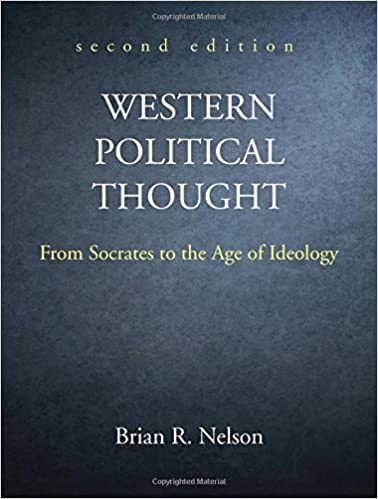
What makes a good leader? What is the nature of good and evil? What are the features of good government? This course will take your student through a classical journey with some of the greatest thinkers who led the development of western civilization. This course will challenge students to think deeply about their lives and their role in broader society.
How to get the most out of Western Political Thought with Paul Hyatt:
-
First, read the course materials below before the first class meeting.
-
Then have a notebook ready and available for class notes each live session.
-
Read assignments before class meetings
-
Watch that week’s recording if you need to revisit information from our live session.
-
Do the assignments, quizzes, and any extra work assigned for that week.
-
Once the course is completed to the parent's and professor’s satisfaction, there is a Certificate of Completion at the end to be filled in for your records.
Special Notes: This course includes a writing component.
Total classes: 12
Duration: 55 minutes per class
Prerequisite: None
Suggested grade level: 11th to 12th grade, or advanced 10th
Suggested credit: One full semester Western Political Thought. Follow with Political Science in the spring for a full year credit.
Instructors: Paul Hyatt
Instructor email: phyatt.hsc@gmail.com
Course description: St. Thomas Aquinas once argued that “it is natural for man, more than any other animal, to be a social and political animal, to live in a group.” Western Political Thought is designed to look at the arguments of the great thinkers of the past in order to try and understand our political nature. What makes a good leader? What is the nature of good and evil? What are humans like in the state of nature? What are the features of good government? These questions, among many others, will be discussed in detail in this course. The discussions will revolve around the political philosophy of Socrates, Plato, Aristotle, Cicero, St. Augustine, St. Thomas Aquinas, Machiavelli, Hobbes, Locke, Rousseau, Burke, and Marx. Hopefully, by the end of the course, we can discover why we believe in western political thought.
Course outline:
Week 1: Intro and Socrates
Week 2: Plato
Week 3: Aristotle
Week 4: Cicero
Week 5: St. Augustine
Week 6: St. Thomas Aquinas
Week 7: Machiavelli
Week 8: Social Contract: Hobbes, Locke
Week 9: Social Contract: Rousseau
Week 10: Age of ideology: A discussion of modern politics
Week 11: Truth, Honesty, and Politics
Week 12: Orwell, 1984
Course materials:
Western Political Thought: From Socrates to the Age of Ideology, Second Edition by Brian R. Nelson. ISBN-10: 1478627638, ISBN-13: 978-1478627630 (https://amzn.to/3vMyVXO)
1984 by George Orwell, any edition will work (https://amzn.to/3Kru0Q7).
Homework: Homework will consist of 6 discussion forum assignments, a final writing assignment, a midterm, and a final. The discussion forums are meant to get students to engage with their classmates in responsible discussion and debate. The student will summarize the thoughts of great thinkers, add their own thoughts, and then start a discussion with another student in the class. Each assignment should take about an hour to complete. The midterm and final exams will be multiple choice exams that are meant to be a review of the material covered in the course. The final writing assignment will require students to contend with one of the greatest novels of the 20th century. Students will write an essay that will call on them to reflect on Orwell’s 1984.
- Teacher: Paul Hyatt